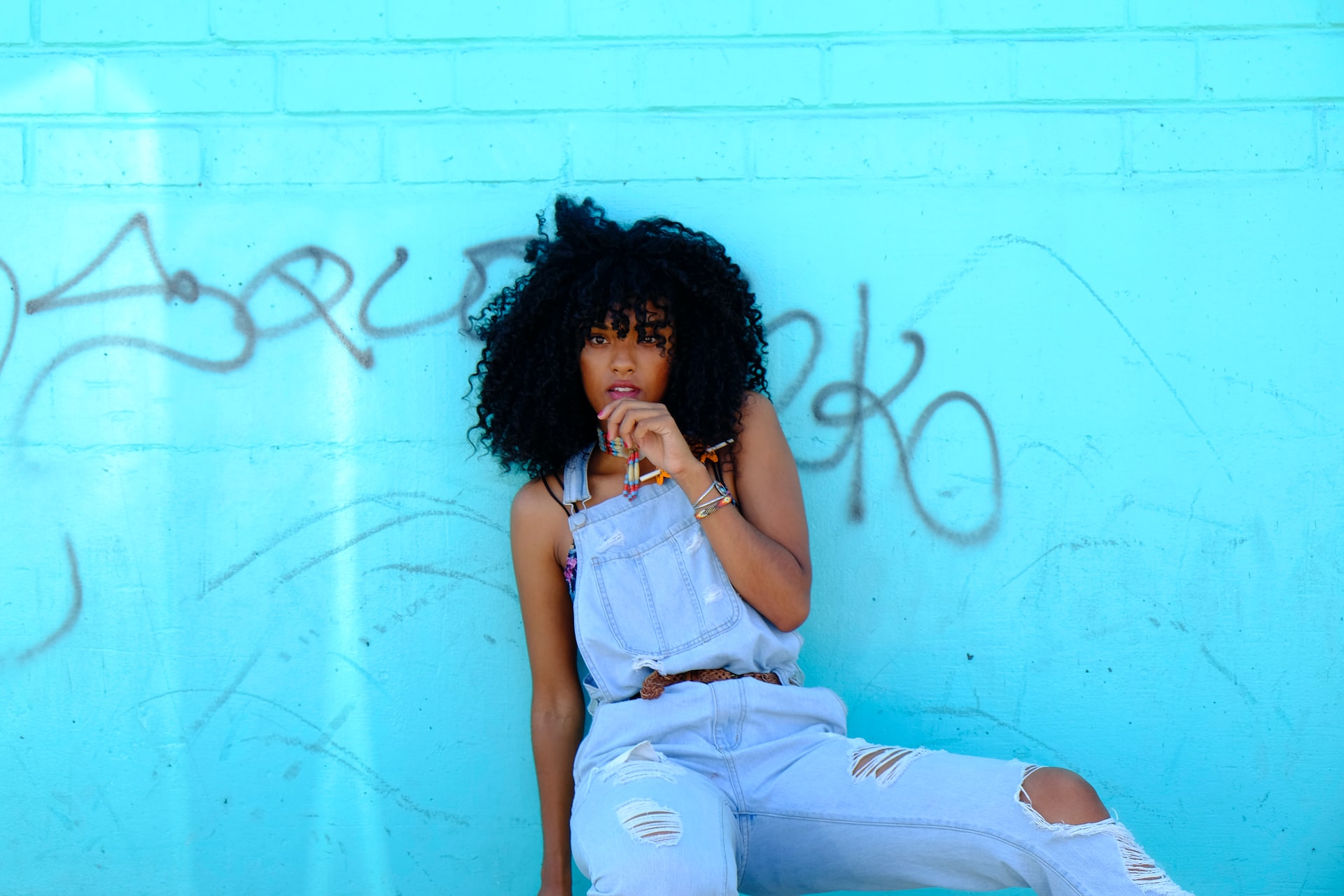
Body + Mind is reader-supported. We may earn an affiliate commission when you buy through some of the links on our site.
People with straight hair often envy those with curly locks. However, you aren’t immune from problems. Frizz can strike at any time and dandruff doesn’t give you a pass.
What can you do to avoid losing your luster and bounce while remedying the problem? Here are nine natural remedies for dealing with curly hair and dandruff.
Dry skin can make dandruff flakes worse. However, you can’t slather lotion all over your scalp. Reach for an even-better solution, courtesy of mother nature: coconut oil.
This oil is solid in the container, meaning you can slather it on like you would conditioner. Fortunately, this stuff does double-duty, moisturizing your tresses while nourishing your scalp’s skin. One 12-week study of 140 women led to a significant improvement in dandruff markers.
Tea tree oil is another boon for curly hair that’s dandruff-prone. This treasure from down under has antimicrobial properties that may help ease your symptoms.
Where does dandruff come from, anyway? Sufferers often note it grows worse when they feel stressed, but there must be more to it than that — not everyone gets flakey under pressure.
Scientists have identified a yeast-like substance called Malassezia that feeds on the scalp oils of most adults. Stress may exacerbate scalp conditions that cause this fungus to spread out of control. Dandruff is more prevalent in those with diseases that weaken their immune system, meaning that your body might lack the power to fight this fire when also battling oxidative stress in other cells.
Aloe vera is a well-known natural remedy for psoriasis. Could it also stop the flakes on top of your head? Much anecdotal evidence says yes.
What does science say? Research published in the National Institutes of Health suggests that aloe vera gel is effective against various fungal infections. The stuff also reduces inflammation, which can produce redness and flakes. Try applying a bit of the gel like a leave-in conditioner and see if you achieve results without weighing down your hair.
Apple cider vinegar is a rich source of probiotics. These beneficial bacteria play critical roles in your gut, but recent evidence suggests they may also help remedy scalp woes.
Your scalp has a microbiome, like your skin and intestines. Try rinsing your hair with apple cider vinegar after you shampoo for a week. The acidity will produce luster, making your tresses look healthier and shinier.
Did you know what the active ingredient in most dandruff shampoos is? It’s salicylic acid. Guess what else also contains this stuff in droves? Aspirin.
Try crushing a pair of aspirin and adding it to your regular shampoo. Leave it to sit for a minute before rinsing.
Omega-3 fatty acids are powerhouses when it comes to keeping your skin soft and supple. These make up your cell membranes and play a crucial role in brain function.
They may also help your hair. However, you can’t apply them topically — you have to get more through your diet. While supplements help, your best bet is food. Fatty fish, flax and chia seeds are all rich sources of this nutrient. If you want flake-free tresses, bring back fish Friday.
Beer also contains yeast. Wouldn’t adding more yeast to what’s essentially a yeast infection make the problem worse? Not necessarily.
Think of beer like dandelions. One blown puffball is all it takes to displace some of your grass for yellow flowers. The yeast in beer works the same way, pushing the bad yeast aside and taking over, balancing your scalp and reducing flakes.
Flat beer is best. The next time you spy a party leftover, dump it on your hair, leave it there for a few minutes, then shower — so you don’t smell like a brewery.
Baking soda is white and flaky. So is dandruff. Won’t one make the other worse? It might sound like that, but this stuff contains a trifecta of flake-fighting power:
You can use baking soda like a dry shampoo in a pinch. Otherwise, try mixing it with coconut oil, egg yolk or olive oil and applying to your scalp, letting it sit for several minutes before rinsing.
Recent research published by the National Institutes of Health showed a hair tonic containing lemongrass oil significantly reduced dandruff. Why not try adding a few drops of this essential oil to your conditioner? You can also use a carrier oil like coconut to apply it to your scalp.
Dealing with curly hair and dandruff is no fun. You get unsightly flakes that leave your shoulders looking like you just walked through a late-season snowstorm.
Fortunately, you don’t have to spend a lot to banish flakes. Try these nine natural remedies for dealing with curly hair and dandruff.